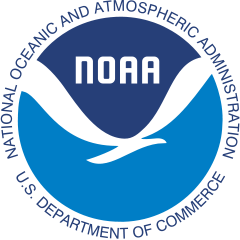Meet Our Scientists
The Geophysical Fluid Dynamics Laboratory has cemented its reputation as a world-renowned, climate modeling center for 56 years — a distinction made possible by a dedicated group of scientists. GFDL’s dynamic mix of physical and atmospheric scientists, oceanographers, climate modelers and more fuse their time and talents to make inroads in climate modeling. Their research keeps the lab running. The following interviews showcase these scientists’ specializations as well as their extracurricular interests, providing a broader window into their professional and personal lives.
| Breaking Down Clouds and Convection with Leo Donner
When asked which instrument would most improve numerical modeling, Leo Donner can’t settle on just one. The GFDL physical scientist says it would take more than a single tool to advance his clouds and convection research, even without cost constraints. Read more… |
Paul Ginoux Brings Sense of Wonder to Climate Modeling
All things being equal, Paul Ginoux prefers to break ground. The research physical scientist, who has evaluated climate models and observed aerosols at GFDL since 2004, says he likes making discoveries but enjoys correcting mistakes within those findings even more. The Belgian says much of his work-related pleasure comes from uncovering why models underperform and then refining their errors for future use. Read more… |
| Understanding the relationship between Earth’s Climate and Ecosystems with John Krasting
John Krasting has always been naturally curious about his surroundings, particularly the weather and its different patterns. Over his career, this love for weather has led him to study the complexities of the Earth’s climate system. This curiosity has guided the GFDL scientist’s work for years. Read more… |
Exploring Land-atmosphere interactions and everything in between with Kirsten Findell
Kirsten Findell has always embraced numbers, expressing an early interest in teaching math to school children. But when the GFDL research physical scientist studied engineering at Princeton University, her occupational desires broadened. At Princeton, she learned how math and science intersect–a revelation that has resonated with her during her years at GFDL. Read more… |
| Exploring Climate Change in the Arctic with Mike Winton
GFDL scientist Mike Winton enjoys the sense of discovery his work yields. The oceanographer, whose research is directed toward fathoming climate change in the Arctic, says each work day is an adventure unto itself and exposes him to unique perspectives every day. Read more… |
“Thinking Big” with Tom Knutson
Tom Knutson avoids one-dimensional thinking whenever possible, but especially at work. Because the GFDL research meteorologist sees global climate change as much more than a surface temperature issue, he approaches and studies it as a multi-layered phenomenon daily. Read more… |
| Exploring AMOC’s impact on global and regional climate with Rong Zhang
One focus of Zhang’s research is the Atlantic Meridional Overturning Circulation (AMOC) and its impacts on global and regional climate, such as Sahel and Indian summer monsoon rainfall, Atlantic hurricane activities, and Arctic climate. Examples of her research include the development of AMOC fingerprints using satellite data, ocean subsurface temperature data, and climate models, and the prediction of future AMOC changes using the fingerprints. Read more… |
Projecting Climate Variations with Gabriel Lau
|










 GFDL scientist and Princeton University lecturer Gabriel Lau has always been intrigued by the origin of atmospheric variability. His research interests include observational and modeling studies of the atmospheric general circulation, the impact of large-scale air sea-interaction on atmospheric variability, and properties of tropical circulation systems.
GFDL scientist and Princeton University lecturer Gabriel Lau has always been intrigued by the origin of atmospheric variability. His research interests include observational and modeling studies of the atmospheric general circulation, the impact of large-scale air sea-interaction on atmospheric variability, and properties of tropical circulation systems.